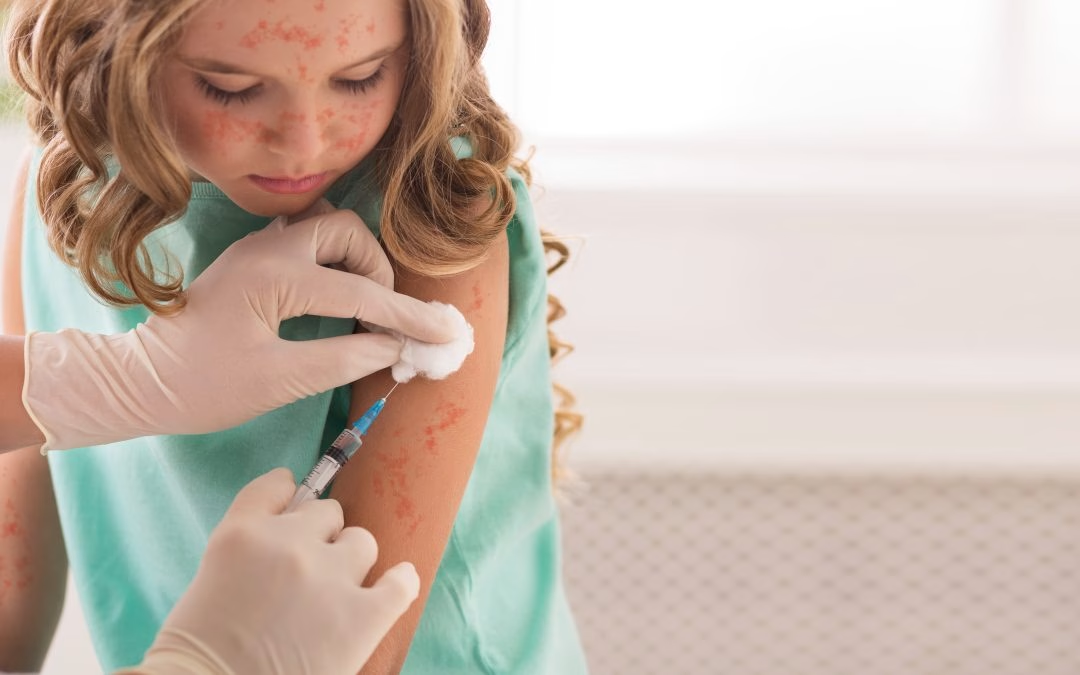by | Jul 14, 2024 | Healthy Living

Is My Tattoo Infected?
Recognize and manage tattoo infections by choosing a reputable studio, following aftercare, and seeking help if needed. Ensure safe healing and enjoy your tattoo without worries.
Getting a new tattoo is exciting, and monitoring its healing process is part of the experience. However, spending time at the pool or in the sun can sometimes lead to complications. If your tattooed skin becomes tender, swollen, or discharges unusual fluids, you may be facing an infection. Knowing the signs and how to respond is crucial for effective treatment and ensuring your tattoo heals properly.
Indicators of Tattoo Infection
It’s normal to see some redness and swelling, but infection symptoms include:
- Ongoing Swelling and Redness: Swelling and redness that worsen or don’t improve within a few days could be a sign of infection. It’s important to monitor the area closely and note any changes.
- Severe Pain: Initial soreness is expected, but if the pain becomes more severe over time, it may indicate an infection. Pay attention to the intensity and duration of the pain.
- Strange Discharge: Clear fluid and mild scabbing are normal, but yellow or green discharge, especially with a bad smell, is a sign of infection. This unusual discharge should be taken seriously.
- Fever: A fever post-tattoo suggests your body is fighting an infection. This systemic response should not be ignored and warrants prompt medical attention.
- Warmth in the Tattooed Area: An infected tattoo often feels unusually warm to the touch. This localized increase in temperature is a common sign of infection.
- Swollen Lymph Nodes: If the lymph nodes near your tattoo become swollen, it can indicate that your body is responding to an infection. This is a sign that your immune system is actively fighting off bacteria or other pathogens.
Causes of Infections
Tattoo infections can happen due to:
- Non-Sterile Practices: Use of non-sterile equipment or poor hygiene by the artist increases infection risk. Always ensure your tattoo artist follows strict sterilization procedures.
- Poor Aftercare: Ignoring aftercare instructions can lead to infection. It’s crucial to keep your tattoo clean and properly moisturized while avoiding exposure to contaminants.
- Exposure to Contaminated Environments: Bacteria-laden environments like pools or gyms can infect a new tattoo. Avoid these places until your tattoo is fully healed.
Immediate Actions for Suspected Infection
If you suspect an infection, follow these steps:
- Contact Your Tattoo Artist: Seek their advice on your symptoms and next steps. They can offer guidance on whether what you’re experiencing is normal or if you should seek medical help.
- Keep It Clean: Gently wash the tattoo with lukewarm water and mild, fragrance-free soap, then pat dry with a clean towel. Avoid rubbing the area, as this can cause further irritation.
- Avoid Unapproved Products: Only apply what your artist or a healthcare professional recommends. Some over-the-counter ointments may not be suitable for treating infections and could worsen the condition.
- Visit a Doctor: For persistent or worsening symptoms, consult a doctor for potential treatments. Prompt medical attention can prevent the infection from spreading and causing more severe health issues.
Preventing Tattoo Infections
To prevent infections:
- Select a Hygienic Studio: Choose a studio known for good hygiene and positive reviews. A reputable studio will follow strict sterilization procedures and maintain a clean environment.
- Follow Aftercare Routines: Adhere strictly to the aftercare guidelines given by your tattoo artist. This typically involves cleaning the tattoo regularly, keeping it moisturized, and avoiding direct sunlight and water exposure.
- Stay Clear of Risky Environments: Avoid pools, hot tubs, and gyms until fully healed. These environments can introduce harmful germs and increase the risk of infection.
Recognizing Serious Symptoms
Certain symptoms necessitate immediate medical attention:
- Rapid Symptom Spread: Worsening symptoms or those spreading beyond the tattooed area indicate a serious infection that needs professional treatment.
- Systemic Symptoms: Fever, chills, or swollen lymph nodes suggest a systemic infection. These symptoms should not be ignored and require prompt medical attention.
- No Improvement: If home care doesn’t improve symptoms within a few days, consult a healthcare professional. Ignoring persistent symptoms can lead to more severe health issues.
A tattoo infection can be concerning, but recognizing the signs early and taking appropriate steps can help manage it effectively. Always choose a reputable studio, follow aftercare instructions, and seek medical help if needed. Staying vigilant ensures your tattoo heals beautifully and without complications. Taking these precautions and staying informed about the healing process can help you enjoy your tattoo without complications. If you have any doubts, it’s always better to be cautious and consult with a professional.


